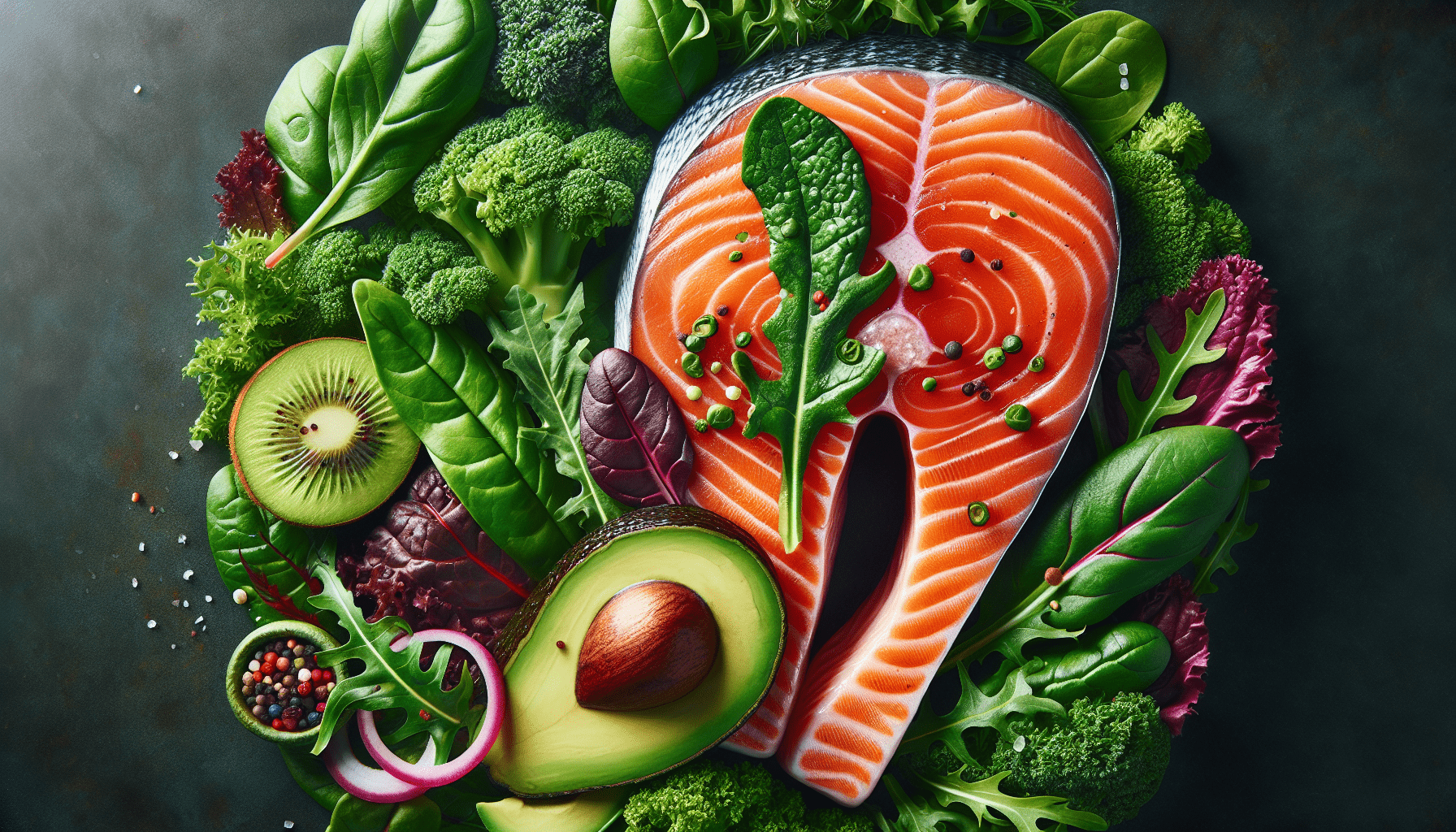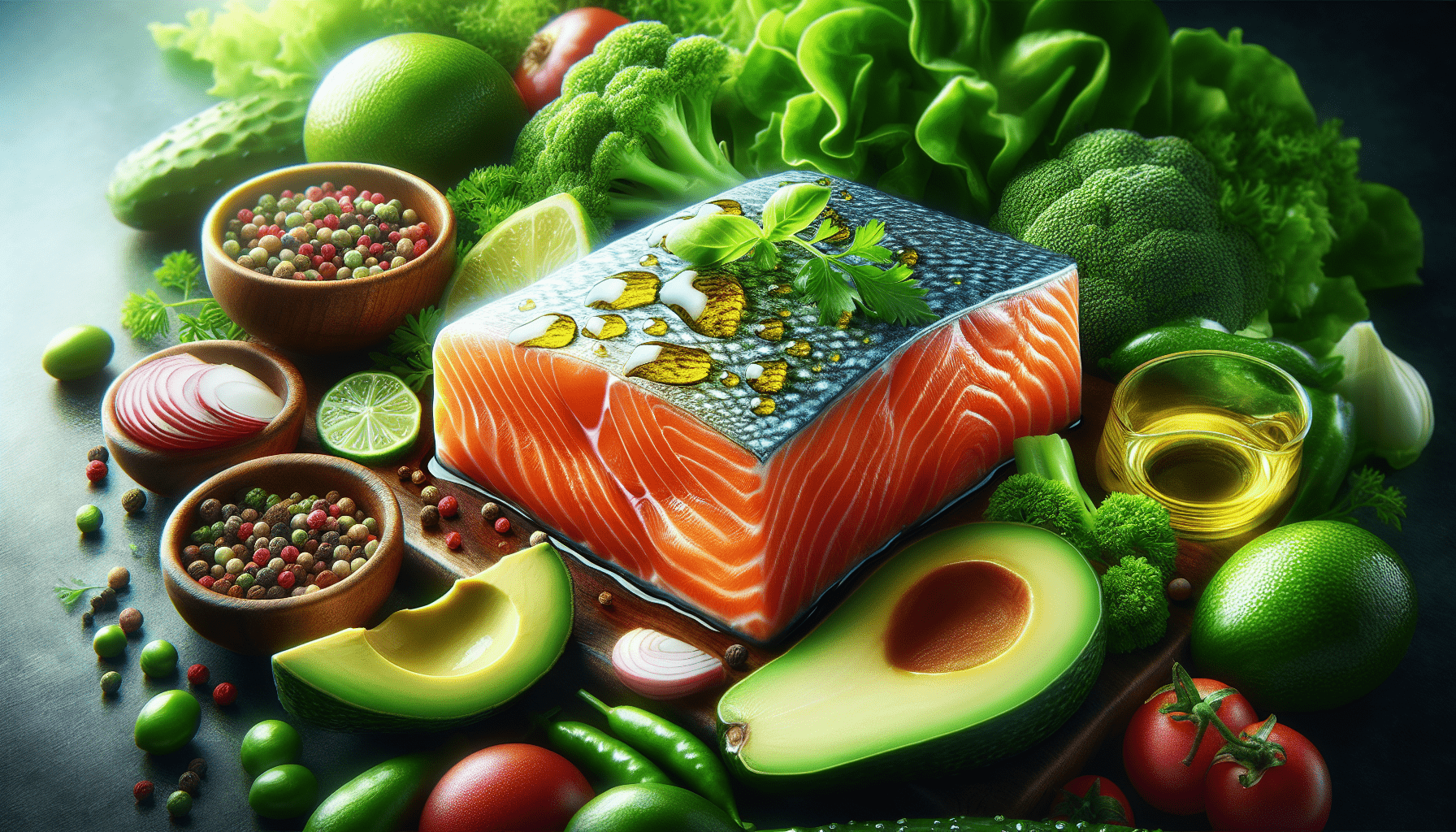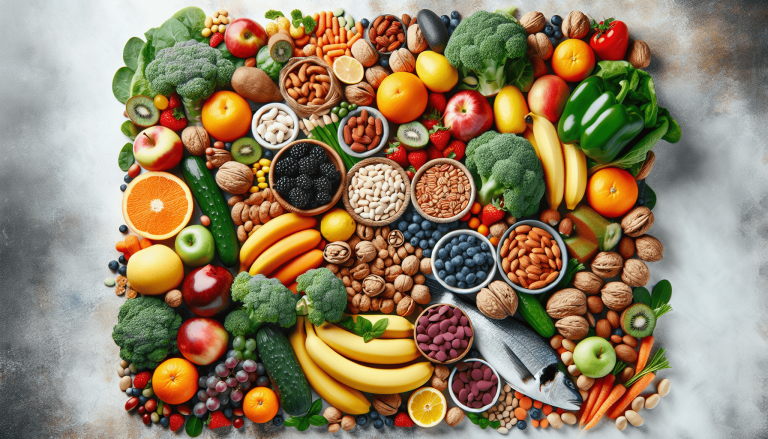What Foods Lubricate The Joints?
Have you ever wondered what foods can help lubricate your joints? Whether you’re an athlete, aging gracefully, or simply want to maintain good joint health, the foods you consume play a crucial role in keeping your joints flexible and pain-free.
Understanding Joint Lubrication
Achieving and maintaining well-lubricated joints is vital for your mobility and overall well-being. joint lubrication ensures smooth movement and reduces friction between bones. The key component responsible for this is synovial fluid, a viscous substance found within the joint cavity.
Synovial Fluid: The Joint Lubricant
synovial fluid is a thick, egg white-like substance produced by the synovial membrane. It lubricates the joints, absorbs shocks, and nourishes the cartilage. Without adequate synovial fluid, your joints would become stiff, painful, and less mobile. Now, let’s look at some foods that can help enhance the production of this vital fluid and improve your joint health.
Omega-3 Fatty Acids
Omega-3 fatty acids are a group of crucial fats that your body cannot produce on its own. These fats are known for their anti-inflammatory properties and can be incredibly beneficial for your joints.
Sources of Omega-3 Fatty Acids
Consider incorporating these omega-3 rich foods into your diet:
| Food Source | Omega-3 Content (per 100 grams) |
|---|---|
| Salmon | 2.3 g |
| Mackerel | 5.1 g |
| Walnuts | 9.1 g |
| Flaxseeds | 22.8 g |
| Chia seeds | 17.8 g |
Fish like salmon and mackerel are fantastic sources of omega-3s, but if you’re vegetarian or vegan, walnuts, flaxseeds, and chia seeds are excellent alternatives.
High-Antioxidant Foods
Antioxidants are compounds that help protect your cells from damage caused by free radicals. Free radicals can contribute to inflammation, including in your joints.
Key Antioxidant-Rich Foods
Here are some foods high in antioxidants that can benefit your joint health:
| Food Source | Antioxidant Content (per 100 grams) |
|---|---|
| Blueberries | 9.2 mmol |
| Strawberries | 5.4 mmol |
| Broccoli | 3.2 mmol |
| Spinach | 1.7 mmol |
| Green tea | 1.2 mmol |
Incorporating berries like blueberries and strawberries, as well as vegetables like broccoli and spinach, can fight oxidative stress and promote healthier joints.

Vitamin D and Calcium
Vitamin D and calcium are essential for maintaining strong bones and joint health. A deficiency in either can lead to weak bones, poor joint function, and an increased risk of joint-related disorders.
Sources of Vitamin D
| Food Source | Vitamin D Content (per 100 grams) |
|---|---|
| Cod liver oil | 250 mcg |
| Salmon | 16 mcg |
| Swordfish | 14 mcg |
| Fortified milk | 3.2 mcg |
| Egg yolks | 2 mcg |
Sources of Calcium
| Food Source | Calcium Content (per 100 grams) |
|---|---|
| Almonds | 264 mg |
| Cheese | 721 mg |
| Tofu | 350 mg |
| Sardines | 382 mg |
| Yogurt | 150 mg |
Foods like cod liver oil and fortified milk provide vitamin D, while almonds and tofu are good sources of calcium. Together, these nutrients support bone density and joint health.
Anti-Inflammatory Spices
Some spices have powerful anti-inflammatory properties that can help soothe your joints and reduce pain. Adding these spices to your meals can be a tasty way to support your joint health.
Top Anti-Inflammatory Spices
| Spice | Active Compound |
|---|---|
| Turmeric | Curcumin |
| Ginger | Gingerol |
| Garlic | Allicin |
| Cinnamon | Cinnamaldehyde |
| Cayenne pepper | Capsaicin |
Turmeric and ginger are two key spices known for their anti-inflammatory effects. Curcumin, the active compound in turmeric, has shown promise in reducing joint inflammation and pain. Similarly, gingerol in ginger can help in alleviating joint discomfort.
Hydrating Foods
Proper hydration is crucial for maintaining the viscosity of synovial fluid. Dehydration can lead to decreased synovial fluid production, which may cause joint stiffness and pain.
Best Hydrating Foods
| Food Source | Water Content (%) |
|---|---|
| Cucumber | 95% |
| Watermelon | 92% |
| Strawberries | 91% |
| Lettuce | 96% |
| Celery | 95% |
Hydrating foods like cucumber, watermelon, and strawberries help replenish the water needed for optimal synovial fluid production, keeping your joints well-lubricated.

Collagen-Boosting Foods
Collagen is a protein that plays a crucial role in maintaining the structure and integrity of ligaments, tendons, and cartilage. Enhancing your body’s collagen production can improve joint flexibility and strength.
Foods That Boost Collagen Production
| Food Source | Collagen-Benefiting Nutrient |
|---|---|
| Bone broth | Collagen |
| Chicken | Collagen |
| Fish | Omega-3, Collagen |
| Citrus fruits | Vitamin C |
| Berries | Vitamin C |
Bone broth and chicken are direct sources of collagen, while citrus fruits and berries are rich in vitamin C, which aids in collagen synthesis.
Healthy Fats
Healthy fats, particularly monounsaturated fats, are essential for overall health and can support joint lubrication by influencing the composition of synovial fluid.
Sources of Healthy Fats
| Food Source | Healthy Fats Content (per 100 grams) |
|---|---|
| Avocado | 15% monounsaturated |
| Olive oil | 73% monounsaturated |
| Nuts (Almonds) | 49% monounsaturated |
| Seeds (Sunflower) | 19% monounsaturated |
| Dark chocolate | 29% monounsaturated |
Incorporating avocado, olive oil, and nuts into your diet not only provides healthy fats but also supports joint lubrication and overall health.
Herbal Remedies
Herbs have been used for centuries to treat various ailments, including joint pain and discomfort. Some herbs possess anti-inflammatory and pain-relieving properties that can benefit your joints.
Beneficial Herbs for Joints
| Herb | Benefit |
|---|---|
| Boswellia | Reduces inflammation |
| Cat’s claw | Eases pain and swelling |
| Eucalyptus | Provides relief from joint pain |
| Stinging nettle | Reduces inflammatory markers |
| Willow bark | Acts as a natural pain reliever |
Herbs like Boswellia and willow bark can be used in teas or supplements to help reduce joint inflammation and provide pain relief.
Vitamin E
Vitamin E is a powerful antioxidant that protects your cells from oxidative damage and supports joint health by reducing inflammation.
Foods High in Vitamin E
| Food Source | Vitamin E Content (per 100 grams) |
|---|---|
| Almonds | 25.63 mg |
| Spinach | 2.03 mg |
| Sweet potatoes | 0.26 mg |
| Avocado | 2.07 mg |
| Sunflower seeds | 35.17 mg |
Almonds, spinach, and sweet potatoes are excellent sources of vitamin E that can help protect your joints and reduce inflammation.
Selenium
Selenium is a trace mineral that helps combat oxidative stress, an important factor in maintaining healthy joints.
Foods Rich in Selenium
| Food Source | Selenium Content (per 100 grams) |
|---|---|
| Brazil nuts | 1917 mcg |
| Tuna | 80.4 mcg |
| Sardines | 52.7 mcg |
| Ham | 49.2 mcg |
| Eggs | 30.8 mcg |
Brazil nuts are particularly rich in selenium and can be a handy snack to help keep your joints healthy.
Probiotics
Maintaining good gut health can influence your overall inflammation levels, including in your joints. Probiotics can help balance gut bacteria and reduce systemic inflammation.
Probiotic-Rich Foods
| Food Source | Probiotic Content (CFU per gram) |
|---|---|
| Yogurt | 10^8 – 10^9 |
| Kefir | 10^6 – 10^7 |
| Sauerkraut | 10^7 – 10^9 |
| Kimchi | 10^8 – 10^9 |
| Miso | 10^6 – 10^7 |
Adding foods like yogurt, kefir, and kimchi into your diet can support gut health and indirectly benefit your joints.
Conclusion
Maintaining well-lubricated joints isn’t just about exercise or avoiding injuries; it heavily involves the foods you choose to consume. Fruits, vegetables, oily fish, nuts, seeds, and spices all have components that can keep your joints healthy and pain-free. By including a varied selection of these foods into your daily diet, you can nourish your joints, enhance synovial fluid production, and enjoy a more active, pain-free life.
Whether you’re looking to prevent joint issues or alleviate existing discomfort, incorporating these nutrients and foods can make a significant difference. A balanced diet rich in the right vitamins, minerals, fats, and antioxidants is one of the best ways to ensure your joints stay well-lubricated and healthy. So next time you plan your meal, think about how it can benefit your joints, not just your taste buds!
Additional Resources
This can literally end the painkillers industry in a flash! And all it does is use this one ancient Asian plant…
One brave American wanted to pursue a safer, 100% natural and efficient way to restore his joint health and mobility without the dangers posed by the painkillers or the life threatening surgeries…
Nobody believed in him, not even his own family…
Until he proved them wrong with a simple, yet astoundingly efficient formula that helped him restore his body to its prime! But while doing that, he uncovered a deep, dark secret Big Pharma wanted hidden for the rest of their days…
Look, see it for yourself and spread the word about it!
>> what Big Pharma doesn’t want you to know about your joints







